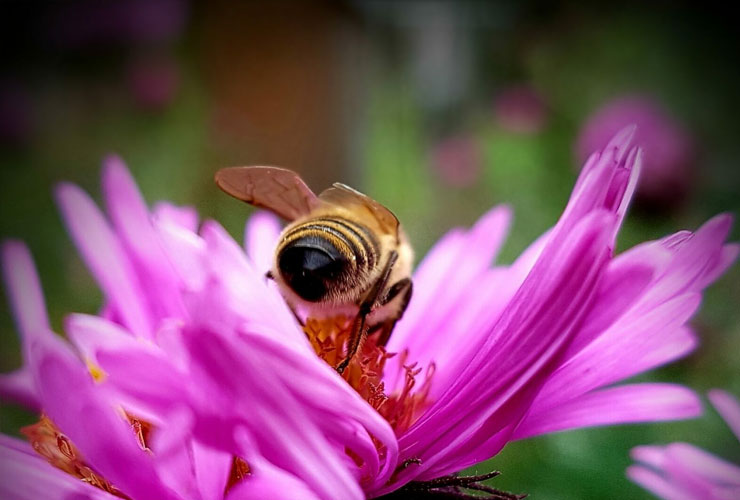Two Years of Bee Power: How You Can Strengthen the Kleine Schwarzwaldimkerei with Protectstar and Why It Matters Right Now

Imagine being able to do two good deeds with one small contribution: protect your digital data and help safeguard the hardworking bees in the heart of the Black Forest from an invasive threat. That’s exactly what our partnership with the Kleine Schwarzwaldimkerei (the “Little Black Forest Apiary”) makes possible. For about two years now, we’ve been supporting this certified organic apiary in Bad Wildbad—and in this article you’ll see why your support matters more than ever: which dangers the bees face (above all the Asian hornet), what changed legally in 2025, what your donation achieves in concrete terms, and how to join in just a few steps.
Why Bees in the Black Forest Especially Need You Right Now
Bees are the quiet workhorses of our landscapes: without their pollination, there would be less variety on our plates, in our gardens, and in the forest. The Kleine Schwarzwaldimkerei chooses its locations with great care—currently there are two sites right in Bad Wildbad: at the city and spa nursery and on the green roof of the vocational training center’s underground parking garage. Key criteria include abundant forage, safety, and a favorable microclimate. Another guiding principle: a maximum of 15 colonies per site—stability over overloading. The result is regional summer and forest honey—and healthy colony structures.
Your contribution makes the difference here: it helps keep these ecologically meaningful sites in top shape, funds protective measures, and ensures that thousands of wild and cultivated plants in the Black Forest continue to be pollinated.
The Kleine Schwarzwaldimkerei: Organic by Conviction
Behind the apiary are Bea Zotti and Axel Kull. Their philosophy is clear: bee‑centric, organic, and chemical‑free. In practice, that means: wooden hive boxes instead of Styrofoam, no clipping of queens’ wings, no ultra‑filtration, and honey taken only from combs that have never contained brood. Honey from the brood chamber stays with the bees. This respects the bees’ daily life and preserves honey as a true natural product—and you can taste the difference.
This approach strengthens not only honey bees but biodiversity as a whole. At the annual Bee Sponsor meet‑ups, you can look over Bea and Axel’s shoulders, peek into the hive, and sample genuine Black Forest organic honey.
Asian Hornet: The Stress Factor at the Hive Entrance
The Asian hornet (Vespa velutina) is spreading in Germany and prefers to hunt honey bees at the hive entrance—especially from late summer on, when protein needs rise. That creates massive stress: foragers fly less often, food intake and brood care suffer. At the Kleine Schwarzwaldimkerei, the pressure in 2024 led to losses of almost 50% of the colonies. In response, monitoring and protective measures were ramped up—including protective entrance grids (“Maulkörbe”) for small colonies that reduce predation pressure at the hive entrance. Purchasing these protective devices was made possible with support from Protectstar.
Identification tips: look for yellowish leg tips and a dark abdomen with a yellow band; nests often hang high up in treetops—hard to spot and often visible only in the fall.
What Changed in 2025—and Why Donations Matter Especially Now
Important and often misunderstood: in 2025, the Asian hornet was officially classified in Germany as “widely established.” This shifted the approach under EU Regulation 1143/2014 from Early Detection & Eradication (Article 16) to Management (Article 19). In practice, that means reported nests are no longer removed everywhere on an automatic, immediate basis; instead, authorities prioritize actions case‑by‑case after a cost‑benefit assessment.
For Baden‑Württemberg, there has been a management and action guidance sheet since March 2025 that sets clear guardrails. Especially important: non‑selective traps are prohibited (BArtSchV—Germany’s Federal Species Protection Ordinance). Permitted are selective, expert‑reviewed measures, targeted capture of queens after reliable species identification, and professional nest removal.
Bottom line: the on‑the‑ground work—monitoring, reporting, targeted removal, and protection at the hives—requires additional private funding. This is exactly where your donation has maximum impact.
What Your Donation Achieves
Starting at EUR 1.95 (or US$1.99) per week, you become a Bee Sponsor. That helps save at least 300 bees and protect around 800 from the Asian hornet. You also support the pollination of numerous wild plants and the sustainable practices of a certified organic apiary. As a thank‑you, you’re invited to the annual Bee Sponsor gathering.
You can also take out a sponsorship directly with the apiary: four small jars (200 g each) of organic honey, a certificate, and an invitation to the sponsor gathering are included. For companies, there are dedicated options—for example, hosting your own colonies on company grounds.
Where donations go (insights from two years of support):
- Entrance protection: procurement and installation of protective entrance grids (“Maulkörbe”)—especially effective for nucs and small breeder colonies.
- Monitoring & outreach: verify sightings, locate and selectively remove primary/secondary nests; public information and training.
- Resilient organic management: bee‑centric husbandry and nature‑near sites.
Our Takeaway After Two Years of Support: Leverage, Not a Drop in the Bucket
We aim for impact, not symbolism. That’s why we invest where your donation delivers the strongest leverage today: directly at the apiary and in coordinated measures against Vespa velutina. The results show in more stable young colonies, better oversight (monitoring), and practical support when it counts. In short: your donation doesn’t just vanish—it delivers.
Bee sponsorship is one building block of this responsibility, and that’s exactly why we’re asking you: buzz with us!
The reality in 2025 is clear: the Asian hornet remains listed, but the approach has shifted to management. What helps now are funded, targeted measures on the ground—entrance grids, monitoring, outreach, and resilient organic practices. This is precisely where our support is focused. And this is precisely where you make the difference: with a sponsorship that demonstrably works.
Join In Now
→ Become a Bee Sponsor:
https://shop.protectstar.com/en/products/bee-sponsorship
→ Sponsorship directly with the apiary:
https://die-kleine-schwarzwaldimkerei.de/produkt/bienenpatenschaft